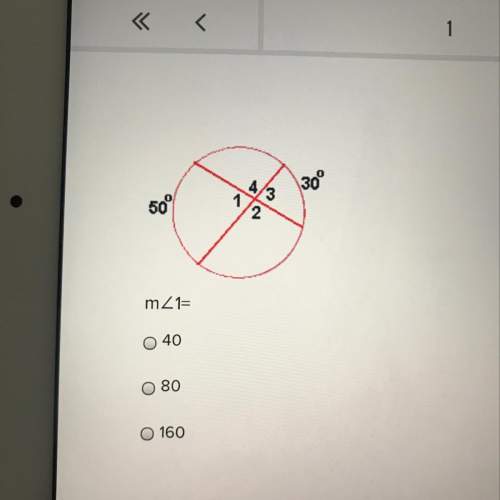
Mathematics, 02.08.2019 13:00 xxaurorabluexx
Irecently (yesterday) took the amc 10a, can anyone me with this problem? for a positive integer n and nonzero digits a, b and c, let  be the n-digit integer each of whose digits is equal to a; let
be the n-digit integer each of whose digits is equal to a; let  be the n-digit integer whose digits is equal to b; let
be the n-digit integer whose digits is equal to b; let  be the 2n digit integer (not n digit) each of whose digits is equal to c. what is the greatest possible value of a + b + c for which there are at least two values of n such that
be the 2n digit integer (not n digit) each of whose digits is equal to c. what is the greatest possible value of a + b + c for which there are at least two values of n such that  ? *this was #25, and the questions have been posted to the art of problem solving website, so i'm guessing discussion is allowed.
? *this was #25, and the questions have been posted to the art of problem solving website, so i'm guessing discussion is allowed.

Answers: 1
Another question on Mathematics

Mathematics, 21.06.2019 19:30
Choose the more precise measurement. 26.4 cm or 8.39 cm
Answers: 1

Mathematics, 21.06.2019 20:30
Drag the tiles to the correct boxes to complete the pairs. not all tiles will be used. match each division expression with the correct quotient.
Answers: 2

Mathematics, 21.06.2019 21:50
Which of the following equations is equivalent to x/3-6/x=1
Answers: 3

You know the right answer?
Irecently (yesterday) took the amc 10a, can anyone me with this problem? for a positive integer n...
Questions


Health, 08.12.2020 01:40



Mathematics, 08.12.2020 01:40




Chemistry, 08.12.2020 01:40



SAT, 08.12.2020 01:40

English, 08.12.2020 01:40


English, 08.12.2020 01:40

Mathematics, 08.12.2020 01:40



Mathematics, 08.12.2020 01:40

 is the
is the  digit number with all digits equal to one.
digit number with all digits equal to one. is a one followed by
is a one followed by  zeroes, so subtracting one gives
zeroes, so subtracting one gives  ,
,  , and
, and  .
. . Then, we have:
. Then, we have: .
. gives:
gives:
 is not a valid input, since
is not a valid input, since  requires
requires  , so we safely divide by
, so we safely divide by  to get:
to get:


 , it has either zero, one, or infinitely many solutions. Obviously, we need the latter to occur, which happens when
, it has either zero, one, or infinitely many solutions. Obviously, we need the latter to occur, which happens when  and
and  , since the coefficient of
, since the coefficient of  , we must have
, we must have  . Since
. Since  must be a multiple of three, we plug in values. If
must be a multiple of three, we plug in values. If  , we get
, we get  and thus
and thus  , which is impossible. So
, which is impossible. So  ,
,  , and thus
, and thus  , so
, so  , so
, so  . This gives
. This gives  as one possibility.
as one possibility. ,
,  , and thus
, and thus  , so
, so  . This obviously is worse.
. This obviously is worse. and
and  , so our answer is
, so our answer is  .
.



